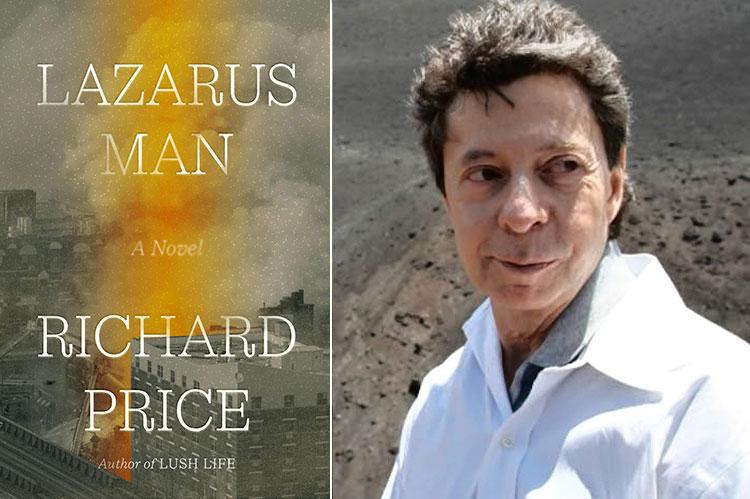“Lazarus Man”
Richard Price
Farrar, Straus and Giroux, $29
The how, why, and what: The title of Richard Price’s new novel, “Lazarus Man,” calls up for me a line from “Lazarus,” a song by the Texan singer Ray Wylie Hubbard. “At least we ain’t Lazarus and had to think twice about dying.”
But I came to writing this review when I asked an editor at The Star if he had a book I might review, as once upon a time I did a lot of reviewing, and so this novel arrives and suddenly I am back nearly 50 years ago, when Richard Price and I were students in the writing division at the Columbia University Graduate School of Arts and Sciences in classes taught by Richard M. Elman and Hannah Green.
Subsequently, Mr. Price had great success with his first novel, “The Wanderers,” and followed this up with “Bloodbrothers.” There had been some controversy when Elman had some reservations about “Bloodbrothers,” and Hannah Green had been uncomfortable with the deliciously sordid content of Mr. Price’s novels, but then she had been a student of Vladimir Nabokov’s at Wellesley and had written a wonderful essay, “Mr. Nabokov,” and a novel, “The Dead of the House.”
All of that is probably some version of ancient history, though I guess I was prepared for Mr. Price’s novel by the very places where I have lived in Manhattan. When I was moving to East First Street way back when, I asked a cop on Fifth Street what it was like. “Nothing special, just bums knifing each other.”
Of course for many years I have read the trail of Mr. Price’s novels, beginning with “The Wanderers,” “Bloodbrothers,” “Ladies’ Man,” “The Breaks,” “Clockers,” “Freedomland,” “Samaritan.” And I know there are movies from his books and he has written many scripts that won well-deserved prizes.
The last time I was with him was more than 20 years ago, when we were both at a volleyball match between our daughters’ schools. My daughter was at the School of the Convent of the Sacred Heart and his was at the Friends School. As I was doing this review I asked my daughter who won, and she said, “We did, Friends didn’t have very good teams.”
And while this might all seem far from the novel at hand, it might serve as a reminder that Mr. Price is one of the essential recorders of what it has been like to be alive in the United States now for many years, because in his prolific writing life — both books and for the movies — he has recorded closely what all that might mean. This is little mentioned, though I do think he is right there with Robert Stone and Don DeLillo, both of whose works have now been taken into the Library of America.
But to understand and situate this new novel in order to do this review I had to seek out Mr. Price’s other novels, so in the North Brunswick Public Library in New Jersey they had a copy of “Freedomland” — much read but not recently — while the Milltown Library had a copy of “Samaritan,” also much read though not recently; the much larger East Brunswick Library had no copies of his novels.
Happily, the Barnes & Noble in the Menlo Park Mall in Edison had five of Mr. Price’s novels on the shelf, so we can conclude that he is really still in the world. But in turning to “Lazarus Man,” which is about a building collapse in Harlem, I find myself reading a novel that seems more like a carefully researched report for some city agency investigating something or other . . . a guy, Felix, has seen the building collapse and had been taking pictures. Someone has swiped his camera. “He shouted for him to stop which was stupid — he might as well have shouted for the kid to run faster, which is what he did.”
But on the same page: “Struck by how carefully the thief had placed his pricey camera on top of some soft garbage instead of just dropping it on the street, Felix lost all desire to pursue.”
And the reader is mightily discouraged from reading what is really only a montage of outrage, though much particularized and cataloged by race, ethnicity, and economic status.
Thomas McGonigle is the author of “Going to Patchogue,” newly reissued by Tough Poets Press, which in 2025 will also reissue his “Diptych Before Dying.”
Richard Price had a house in Amagansett for many years.

